Welcome to the Key Stage 4 Curriculum Guide, which has been designed to serve as a handy reference for parents and carers who have queries about students’ learning at Mulberry UTC. This guide includes all the subjects your child will be studying during Key Stage 4 at Mulberry UTC.
If you have any enquiries related to the Key Stage 4 Curriculum please contact:
J Kibela, Assistant Principal
Email: jkibela-purnell@mulberryschoolstrust.org
Our aim is for each student to develop their knowledge, understanding and skills through a rigorous and challenging programme of study. Beyond the taught curriculum, there are also many opportunities for your child to participate in a wide range of enrichment activities including drama, arts, public speaking, debating and sports.
As they move into Years 10 and 11, students embark on courses leading to public examinations. This means that, as they start to prepare for these examinations, the curriculum becomes less wide-ranging compared with the previous stage of education, as students start to specialise in particular subjects. The curriculum followed by students during Key Stage 4 at Mulberry UTC, however, remains broad-based and wide-ranging. The level of challenge in the curriculum also remains high and students are encouraged to stretch themselves beyond their previous levels of achievement. The curriculum at the UTC is made accessible to all students with disabilities or special educational needs through quality first teaching and additional specialist help from the support for learning team. Further information about how Mulberry UTC meets its duties outlined in the the Equality Act 2010 and the Special Educational Needs and Disability Regulations 2014 can be found in our Special Educational Needs and Disabilities policy.
All Key Stage 4 students study a core curriculum of English language, English literature, Mathematics, Science, Physical Education, Personal Development and Religious Education. All student also choose two technical options,
which involves a choice between Performing Arts or Business Studies and between Creative Digital Media or Health and Social Care. In addition, students are also required to study Sociology.
These choices have been carefully selected to ensure that every student is well prepared for their future careers and for fulfilling and satisfying lives in work, leisure and at home.
All classrooms at Mulberry UTC are equipped with interactive whiteboards and teachers make full use of this equipment to enhance participation and engagement in lessons. Laptops and Tablets are used as learning aids, for example by allowing visually impaired students to enlarge diagrams or text. Mulberry UTC offers a Virtual Learning Environment (VLE) through Microsoft Teams which provides further exciting opportunities to use technology to enhance the student learning experience.
Please do not hesitate to contact the school if you have any queries about the curriculum. We wish you a successful and enjoyable year.
Mr D Seed
Principal
Aims and Mission Statement
Our curriculum is designed to ensure that students can flourish at Mulberry UTC. Each learner is valued and respected equally, enjoying the highest possible standard of academic and technical education and the chance to participate in everything that we do.
We aim to enable our students to become confident, creative and questioning young people who are able to lead and excel in what they do. They demonstrate this in a number of ways, including making their contribution to the way that Mulberry UTC is run, understanding the learning process and accepting the responsibility for taking their learning forward.
We encourage and support students to make a positive contribution to our community, to British society and to the economy, now and in their future lives.
We do this by:
- Providing a stimulating learning and teaching environment in which every pupil enjoys their education, feels safe and secure and is able to fulfil their full potential.
- Promoting high standards of achievement and academic attainment for all, enabling every pupil to leave Mulberry UTC academically and technically well-qualified, with a breadth of experience that has allowed them to develop and enrich all their talents and aptitudes.
- Creating a learning environment which meets the educational and social needs of every pupil equally, regardless of prior attainment, aptitude, gender, ethnic background or disability, and which positively provides for their physical and emotional requirements.
- Providing a challenging, broad and a balanced curriculum from Years 10-13, with an extensive range of academic and career-related pathways, as well as a wide programme of extracurricular learning experiences, including arts and international school activities.
- Assisting students to become confident, creative and questioning young people with the ability to lead in and contribute to a diverse range of fields including work, political and social citizenship, the community and family life.
- Supporting students to become independent, life-long learners who can meet with confidence the challenges of a diverse, rapidly changing global society and the world of work.
- Developing positive links with parents/carers and our wider community through partnerships and by making available the school’s facilities and resources for family learning.
- Investing in the professional development of our staff, enabling them to enjoy being part of the school community and to fulfil their roles effectively, so that we build a learning community which works for everyone.
In essence Mulberry UTC seeks to provide an educational experience which promotes confidence, creativity, leadership and learning for all. It also seeks to contribute to its wider community and to the economy.
Subjects Offered
GCSE English Language
GCSE English and Literature
GCSE Maths
GCSE Science (double award)
GCSE History or GCSE Sociology
Technical option 1 – Health and Social Care or Creative and Digital Media
Technical option 2 – Performing Arts or Business Studies
PSHE (including Relationships and Sex Education)
Physical Education
Religious Education
The UTC School Day
| Monday, Tuesday, Wednesday and Thursday | |
| 8.15am | Breakfast (optional) |
| 8.40am | Period 1 |
| 9.30am | Period 2 |
| 10:20am | Break |
| 10.40am | Period 3 |
| 11:30am | Period 4 |
| 12.20pm | Registration/Assembly |
| 12.40pm | Lunch |
| 1.20pm | Period 5 |
| 2.10pm | Period 6 |
| 3.00pm | Period 7 |
| 3:50pm | Sports, enrichment, supervised study, tutoring |
| 5pm | End of Extended School Day |
| Friday | |
| 8.15am | Breakfast (optional) |
| 8.40am | Period 1 |
| 9.30am | Period 2 |
| 10.20am | Break |
| 10.40am | Period 3 |
| 11:30am | Period 4 |
| 12.20pm | Registration/Assembly |
| 12.40pm | Lunch |
| 1.20pm | Period 5 |
| 2.10pm | Period 6; end of school day |
To give students the time to undertake academic and technical studies, the school day at Mulberry UTC is longer than in some other schools.
The school building is open every day from 8.15am and students must arrive before 8.40am for the start of the school day.
On Monday, Tuesday, Wednesday and Thursday, lessons finish at 3:50pm. On Friday, school finishes at 2.10pm.
Students must not remain in the building after 3:50pm (2.10pm on Fridays) unless they are supervised by a member of staff and have notified their parents/carers in advance. With supervision, students may remain in the building until 5pm (2.30pm on Fridays).
Students have a 20 minute break between Period 2 and Period 3 in the morning. This can be spent outside on the Terrace or in The View (our restaurant), where light refreshments are available.
Students are not permitted to leave the building during breaktime.
Students in Years 10 and 11 are not permitted to leave the building during lunchtime and must spend their lunch break in The View, on the Terrace, unless they are taking part in a supervised activity which has been organised by a member of staff.
Projects
At the heart of the UTC philosophy is an emphasis on students having the opportunity to apply their knowledge and skills into practical and real-world contexts. Our curriculum creates space for students to participate in inquiry-based projects that work towards the larger goal of answering a central question, solving a problem or meeting a brief from a client.
All Year 10 students at Mulberry UTC spend two weeks during the year on project-based learning. During this time, they take part in a wide range of challenge projects which are co-constructed with our employer partners and which have close links with students’ academic and technical qualifications.
These projects help students to embed the knowledge and skills they are learning elsewhere in the curriculum, as well as enabling them to develop skills that are important to employers, such as confidence, communication skills, teamwork and problem-solving.
Enrichment and extra-curricular activities
Students at Mulberry UTC benefit from opportunities to take part in a wide range of enrichment and extra-curricular activities. This includes PE and sports activities, the Mulberry Youth Conference, Model United Nations, debating, coding and programming, the arts and music.
Summary of Homework Policy
Regular setting and marking of homework are associated with good education and effective schools.
The completion of homework tasks should develop a student’s ability to work alone, to be self- motivated and well organised.
The setting of homework should generate a variety of worthwhile learning experiences which complement those at school, consolidating, extending and developing certain subject skills outside the classroom.
There should be a variety of homework tasks, within a coordinated framework, leading to a wider concept of homework. For all subjects, tasks will develop skills of researching, organising, writing, the reading of relevant materials and the enjoyment of reading.
Students should see the purpose and relevance of homework tasks set. These should arise naturally from, and lead to, classroom activities; they should be relevant and have a clear purpose.
Homework should not just be a time to finish off uncompleted classwork.
Students with language and learning needs, who require differentiated learning resources and tasks in the classroom, will also need differentiated homework. Students who are working at an advanced level of achievement students should also be catered for and challenged by relevant tasks set for them.
Homework practice should be a matter of whole-school concern, not left to the initiative of individual teachers or departments. It should also reflect all the general aims and policies of the school.
A student planner is issued to all students at the start of the year in which they should keep a record of homework set each day. Tutors and parents are asked to check this record and sign it each week. There is space for them and the students to make comments.
Homework is an important opportunity for home and school to keep in touch, and for parents to
become involved in their child’s education. Links should be made through the planners, and through letters from departments to explain their homework requirements, as well as through letters from parents to explain why homework was found difficult or not done. Links should also be made through parents’ evenings and other contacts with year teams and teachers.
Many departments run homework support sessions during lunchtimes and after school; other homework clubs and study support sessions are being developed.
The recommended time to be spent on homework each evening in Year 10 is 2.5-3 hours per night, which should equate to 1-2 hours per subject per week. Students should expect more homework around exam time or when they are preparing for a particular project or test.
Personal Development
Personal Development (PD) is a planned programme of lessons and experiences that help children and young people grow and develop as individuals and as members of families.
PD deals with the real life issues young people face as they grow up and it equips them with the knowledge, understanding, attitudes and practical skills to live healthy, safe, productive, fulfilled, capable and responsible lives. It encourages them to be enterprising and supports them in making effective transitions from primary to secondary school and beyond. It also enables children and young people to think about their own values and attitudes including British Values so that they will grow into confident individuals and members of society.
All Year 10 students at Mulberry UTC have one lesson per week of Personal Development. These lessons involve exploring the topic of staying healthy, looking at the consequences of risk-taking behaviour e.g. having unprotected sex, drink/ drug driving, smoking and crime. They identify and learn how to manage the pressures on young people from the media and wider society. Students are taught to manage their personal finances and the consequences of getting into debt. They are given strategies to manage stress as they prepare for GCSE exams and plan for Sixth Form or the world of work. There are also lessons about Relationships and Sex Education and Health Education.










